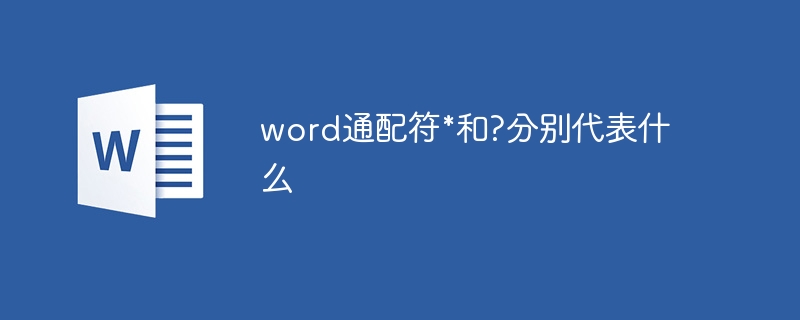Word provides two wildcard characters, namely: asterisk (*): matches any sequence of characters, including the null character. Question mark (?): Matches any single character. Wildcard characters are used to search, replace, and format text, for example, to search for text that contains a specific sequence of characters. Replaces characters in text that match a specific pattern. A format that adds or removes specific characters. Note that wildcards are case-sensitive and can only be used in search and replace text operations.

Word wildcard character
The wildcard characteris used to match or Special symbols for replacement characters. In Word, two commonly used wildcard characters are the asterisk (*) and the question mark (?).
The asterisk (*)
For example:
Question mark (?)
For example:
Using wildcards
Wildcards are typically used for the following purposes:
Note:
The above is the detailed content of What do the word wildcard characters * and ? represent respectively?. For more information, please follow other related articles on the PHP Chinese website!




